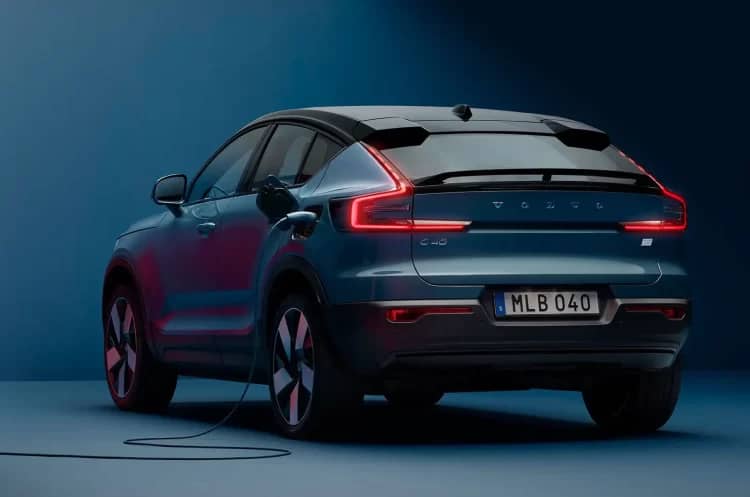Volvo has abandoned its goal to exclusively produce electric vehicles (EVs) by 2030, now planning to include some hybrid models in its lineup by that date.

The company cited shifting market conditions as the reason for revising its target, which was set just three years ago.
This change comes amid a slowdown in demand for EVs in key markets and uncertainty due to trade tariffs on Chinese-made EVs.
Volvo, known for its strong environmental stance, joins other major automakers like General Motors and Ford in adjusting their EV targets.
The Swedish carmaker now anticipates that at least 90% of its output will consist of both electric cars and plug-in hybrids by 2030.
Additionally, it may offer a small number of mild hybrids, which combine conventional engines with limited electric assistance.
Jim Rowan, Volvo’s CEO, stated, “We are resolute in our belief that our future is electric.
However, it is clear that the transition to electrification will not be linear, and customers and markets are moving at different speeds.”
The company noted that the current business climate for EVs is challenging, with issues such as slow charging infrastructure rollout and reduced consumer incentives impacting the market.
Independent analyst Anna McDonald pointed out that consumer concerns, including the high cost of EVs and the lack of sufficient charging infrastructure, continue to affect demand.
Additionally, tariffs on Chinese-made EVs, imposed by the EU, US, and Canada, are driving up production costs.
Registrations of EVs in the EU dropped nearly 11% in July, according to the European Automobile Manufacturers Association.
Volvo, which is majority-owned by Chinese company Geely and uses Chinese factories, will be impacted by these tariffs.
Ford and General Motors are also reassessing their EV plans, with Ford canceling a large electric SUV and delaying its next electric pickup truck, while GM has been reducing its EV production targets.
























































![[FREE FREE MONEY] Predict and Win a Guaranteed GH¢200 From Us EVERY WEEK](https://wordpress.ghanatalksradio.com/wp-content/uploads/2022/02/Predict-and-Win-Final-09-03-2021-218x150.jpg)
![[Predict & Win – 8th/Oct.] WIN A Guaranteed ¢200 From Us This Week](https://wordpress.ghanatalksradio.com/wp-content/uploads/2021/10/maxresdefault-16-218x150.jpg)
![[Predict & Win – 2nd] WIN A Guaranteed ¢200 From Us This Week](https://wordpress.ghanatalksradio.com/wp-content/uploads/2021/09/maxresdefault-50-218x150.jpg)
![[Predict & Win – 25th] WIN A Guaranteed ¢200 From Us This Week](https://wordpress.ghanatalksradio.com/wp-content/uploads/2021/09/maxresdefault-36-218x150.jpg)
![[Predict & Win – 18th] WIN A Guaranteed ¢200 From Us This Week](https://wordpress.ghanatalksradio.com/wp-content/uploads/2021/09/maxresdefault-23-218x150.jpg)









![[National cathedral] See full list of churches that have contributed since 2018](https://wordpress.ghanatalksradio.com/wp-content/uploads/2020/09/Ghana-National-Cathedral-GhanaTalksRadio-100x70.jpg)



